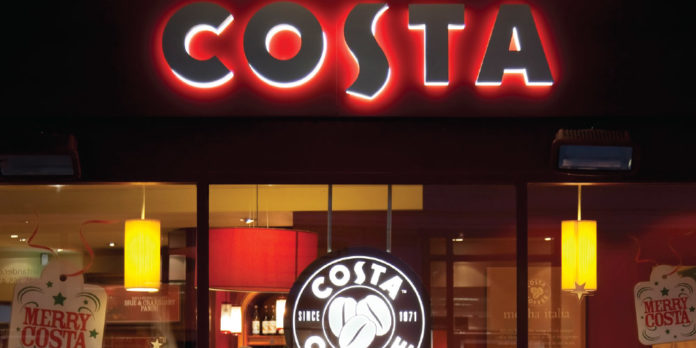Nick Shanagher says it’s up to wholesalers to help independent foodservice outlets to reach consumers and compete with the market giants.
“Our scale creates compelling network effects,” online food and drink ordering portal Just Eat said on the inside front cover of its annual report, published in March.
Just four days later, the Competition and Markets Authority (CMA) decided it would launch an inquiry into Just Eat’s acquisition of Hungry House, a smaller competitor that would add to Just Eat’s rapidly growing UK market share.
Just Eat’s vision is to create the world’s ‘greatest food community’: helping consumers choose what they want to eat, when and where; and helping its restaurant ‘partners’ by improving standards in the industry.
Founded in Denmark, Just Eat now operates in 14 countries and the UK market is its greatest success story. Last year, it generated 88.1m orders here, which converted into £237.1m of sales and earnings before interest, tax, depreciation and amortisation (EBITDA) of £121.8m. Year on year, orders were up 31%, sales up 40% and EBITDA up 57%.
These are impressive numbers, partly driven by increasing the commission charged to restaurants to access its users.
According to the Daily Telegraph, investors have differing views of the Hungry House bid. Fans see it as a way to quickly gain scale in London. Detractors think it is a defensive move, perhaps being pursued in case Amazon enters the market.
Just Eat and its fans argue that the deal should be viewed against the total restaurant and takeaway market, not the part of the market that it dominates – online ordering. However, the CMA has focused its concern on online ordering and the platform’s ability to impose unfair terms on restaurants.
This reflects a jittery mood among economists about the rise of digital networks. “Online platforms that aggregate consumer services stand accused of a new type of feudalism,” the FT’s daily analysis service Lex notes. “Power lies with those that can most conveniently centralise data and destroy competition in the process.”
Network effects are a concern for regulators all around the world, but the CMA is the first competition authority to take a stand against the networks, of which Google, Facebook, Amazon and Apple are the big four.
While the CMA is acting to protect the interests of small businesses – the 27,600 restaurants signed to Just Eat, and the 10,000 signed to Hungry House, excluding overlap – Lex suggests it may not have the ability to stop the deal.
Why? Lex argues that Just Eat is growing faster than the CMA’s economists can carry out the review, meaning it will be much bigger by the time any decision is made.
For wholesalers, Just Eat is yet another tech company that is disrupting their marketplace. Deflation and competition in the grocery market have been intense, and the higher growth rates in foodservice have attracted investment.
However, this growth has also attracted chain stores such as Greggs and Costa, which have grown aggressively in recent years, often at the expense of wholesalers’ independent customers. Under chief executive Roger Whiteside, a former head of food for M&S, Greggs has focused on breakfast, lunch and snacks on-the-go. Investments in efficient manufacturing and in new stores make it a tough competitor.
At the same time, Costa and a host of coffee chains have taken business away from the traditional greasy spoon cafés.
Kebab and fish & chip shops are now falling under the sway of Just Eat, which also intends to supply food and drink to its restaurant partners.
In its previous market reviews, the CMA has put wholesalers in a chart between suppliers at the top and above retailers, other traders and foodservice outlets, with consumers at the bottom.
But has this model changed? The data processing power of online platforms put consumers at the top, with the platform next dictating to restaurants, wholesalers and suppliers. It appears customer-driven, but the platform gets to decide what gets measured and how.
That is Amazon-like power. One ecommerce expert told me last month that Tesco had launched a lowest-price deal on digital TVs last year. Within hours, Amazon had responded by cutting the price of every TV in the Tesco promotion to below what Tesco paid for them. Tesco abandoned the promotion.
There appears to be only one strategy for foodservice wholesalers – invest in helping your customers better reach consumers. Tech companies like Just Eat are not going away, and somehow you have to get consumer data. Data is not an area where independents shine, so the ball is in your court.








